The cracks in Bangladesh’s education system

When Dhaka University's admission test results came out in March, we were shocked to learn that only six percent of examinees had qualified for the science unit. Out of 120,488 students, only 7,437 candidates passed against the 1,896 seats. For the country's premier university, many of us saw it as a sign of competitiveness. By the time admissions were completed, classes resumed, and internal migrations took place, the university identified that 505 of its 6,135 seats had remained vacant. The crisis is severe among some of the science faculties, such as applied chemistry, electrical and electronic engineering, leather technology, and physics, as well as in language courses like Urdu, Pali, and Sanskrit.
There are at least two aspects of this problem. First, the schooling system, serving as a feeder channel for our tertiary system, is in a state of disarray. Second, our students are not interested in some of the disciplines for various reasons that merit close examination. Years of systemic neglect, misplaced priorities, and populist grade inflation have plagued our education system, leading to devastating consequences. Not surprisingly, the World Bank's Human Capital Index has reported that a student completing 12 years of schooling in Bangladesh achieves the equivalent of just 6.3 learning-adjusted years, which is comparable to a Grade 7 international benchmark. The diagnostic report aligns with both the admission test results and the SSC results, which saw the lowest pass rate in 16 years.
Our education system has stunted the cognitive development of our youth at a time when the country is supposed to cash in on its demographic dividends. Their readiness for higher education is questionable. The state-funded public system has the luxury of operating institutions with many vacant seats. Meanwhile, many unsuccessful students transition to the private education system, which offers a range of pre-university courses designed to address the learning gaps experienced by some of these students. In the process, we enter another dimension of the problem: knowledge is available to those who can afford it.
Even an enemy would agree that the main cause of our education debacle is the lack of investment. With an allocation worth less than two percent of GDP for education, our school system has failed to attract qualified teachers. Underpaid teachers in schools and other educational institutions are forced to work part-time due to financial challenges. This scenario has allowed coaching centres, private tutoring, and question-paper-leaking syndicates to emerge as shadow systems. Students now study for exams at proxy institutes, learn some guessing patterns on the internet or from mentors, memorise notes, and reproduce them at exams. The fun of learning, the curiosity to discover or the creativity to express is no longer the objective of learning.
University admission tests designed to assess analytical skills expose our students' weaknesses. Students who may have been tutored with exam-taking hacks fail miserably once they are asked to think, solve, argue, and comprehend. The National Student Assessment (NSA) has consistently monitored the dire situation. They publish reports on the foundational competencies of students in Bangla and maths. According to their 2022 report, only 39 percent of Grade 3 students demonstrated basic proficiency in mathematics, down from 58 percent (2013), and 51 percent in Bangla, down from 75 percent (2013). The drop can be explained due to the pandemic. According to the NSA reports, in Grade 5, proficiency in Bangla was recorded at 26 percent (2011), 25 percent (2013), and declined to 23 percent (2015), then to just 10 percent (2017). In maths, it was 30 percent in 2011, 25 percent in 2013, and 10 percent in 2015, before a slight rebound to 16 percent in 2017. The NSA data reveals a foundational weakness that contradicts figures like the 84 percent school completion rate and the number of GPAs celebrated with drumbeats and exchange of sweets.
The admission test fiasco, along with the World Bank's assessment, reveals to us the dangers posed by years of grade inflation and data doctoring. Our obsession with pass rates, GPA scores, and enrolment targets was weaponised by successive governments to claim success, appease anxious parents, and hide structural weaknesses. Teachers are pressured to ensure pass rates or given impossible deadlines to check thousands of scripts. This year's SSC review, prompted by a sharp fall in the pass percentage, suggests that even the government must rethink its assessment procedures.
The bluff of GPA 5 has been called. It will take time for students and parents who have gotten used to the badge of academic excellence promised by the numbers to acknowledge the learning deficiency. The controversial "auto-pass" policy, which mitigated learning loss during the pandemic, is already reaping its consequences. Policymakers were unaware that the practice of mass promotion instead of exams conveyed a problematic message: performance is negotiable rather than earned. This ethos continued even after the July mass uprising when the empowered students felt entitled to demand similar report cards.
This culture of resistance, however, is not entirely the students' doing. We are a nation that failed to create a system that teaches failure and reflection as essential life lessons for personal growth. We have failed to dissociate the education system from personal interests or donors' desires and craft a curriculum that emphasises critical thinking. While the policy documents will present all the buzzwords of competence-based creative learning, once you come to the actual textbook contents, you will notice a deliberate dumbing down. Those who wrote the books will tell you that they had to keep the low-skilled teachers in mind while developing the material. Otherwise there will be serious backlash. Why are we surprised that our students cannot be benchmarked against their international peers?
The outcome that bothers us is our doing. Instead of building resilience, we have bred fragility. Instead of teaching critical thinking, we have taught strategic complaining. The system that once demanded academic discipline has become hostage to political entitlement.
Dr Shamsad Mortuza is professor of English at Dhaka University.
Views expressed in this article are the author's own.
Follow The Daily Star Opinion on Facebook for the latest opinions, commentaries and analyses by experts and professionals. To contribute your article or letter to The Daily Star Opinion, see our guidelines for submission.

 For all latest news, follow The Daily Star's Google News channel.
For all latest news, follow The Daily Star's Google News channel. 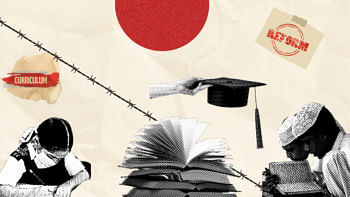
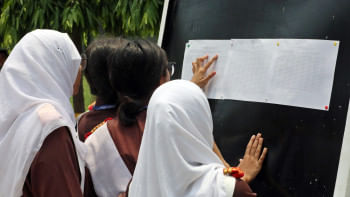



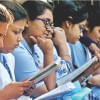
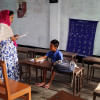

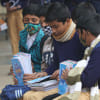
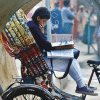

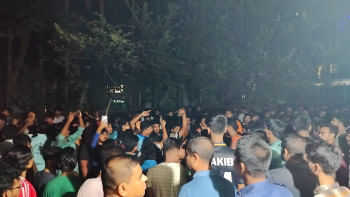
Comments